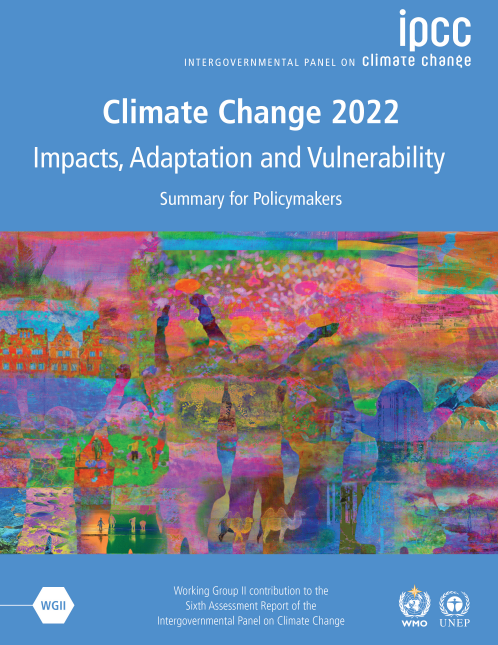IPCC’s latest climate report, mountains and glaciers

The latest report from the Intergovernmental Panel on Climate Change (IPCC, created by the United Nations Environment Programme and the World Meteorological Organization in 1988), was released on 28 February. 270 authors from 67 countries assessed the impacts of climate change on ecosystems and human communities in the Working Group II report of the IPCC’s Sixth Assessment, providing detailed observations of historical and recent changes as well as projections of future changes under different levels of greenhouse gas emissions and warming. The report discusses glaciers globally and in specific regions.
It discusses the loss of glacier mass as a consequence of climate change in mountain areas and notes that research has shown that the pace of this retreat is significantly faster than what had been stated in the 2019 Special Report on Oceans and the Cryosphere. The report shows the important difference between lower and higher rates of greenhouse gas emissions scenarios in coming decades, in fact many low elevation and small glaciers around the world will lose more than half their mass even at 1.5°C warming while higher levels would bring a loss between two-thirds and over 90%.
Such changes have serious consequences for both human and natural systems in a number of different regions of the world: on water cycle, water volume and supply, temperature, chemistry, on terrestrial and aquatic ecosystems, biodiversity and ecosystem services, as well as human systems, food security, hydropower and tourism.
Besides, the impacts of climate change on mountain water cycles have contributed to increased tensions or conflicts over water resources, as shrinking glaciers place communities in a number of regions at risk for water shortages, particularly in the areas with pronounced dry seasons, including Central Asia, South Asia and the Andes.
The report is available at the following link: https://www.ipcc.ch/report/ar6/wg2/